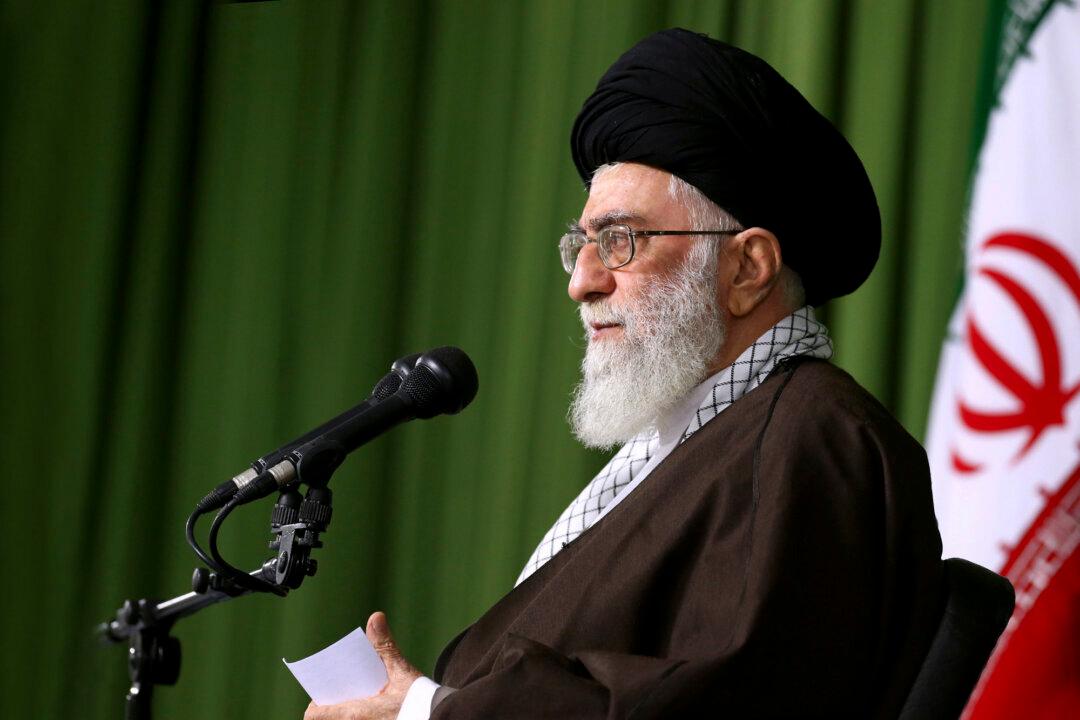Protesters in the Iranian city of Isfahan set fire to a billboard of Supreme Leader of the Islamic Republic, Ayatollah Ali Khamenei, on Monday, Iran International reported.
It comes amid growing tensions within the country after the government announced a hike of 50 percent in gasoline prices in an effort to redistribute money to the country’s neediest citizens.




